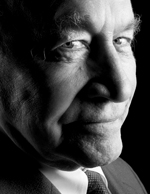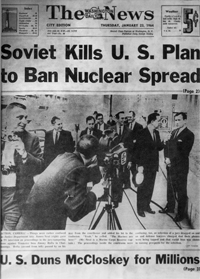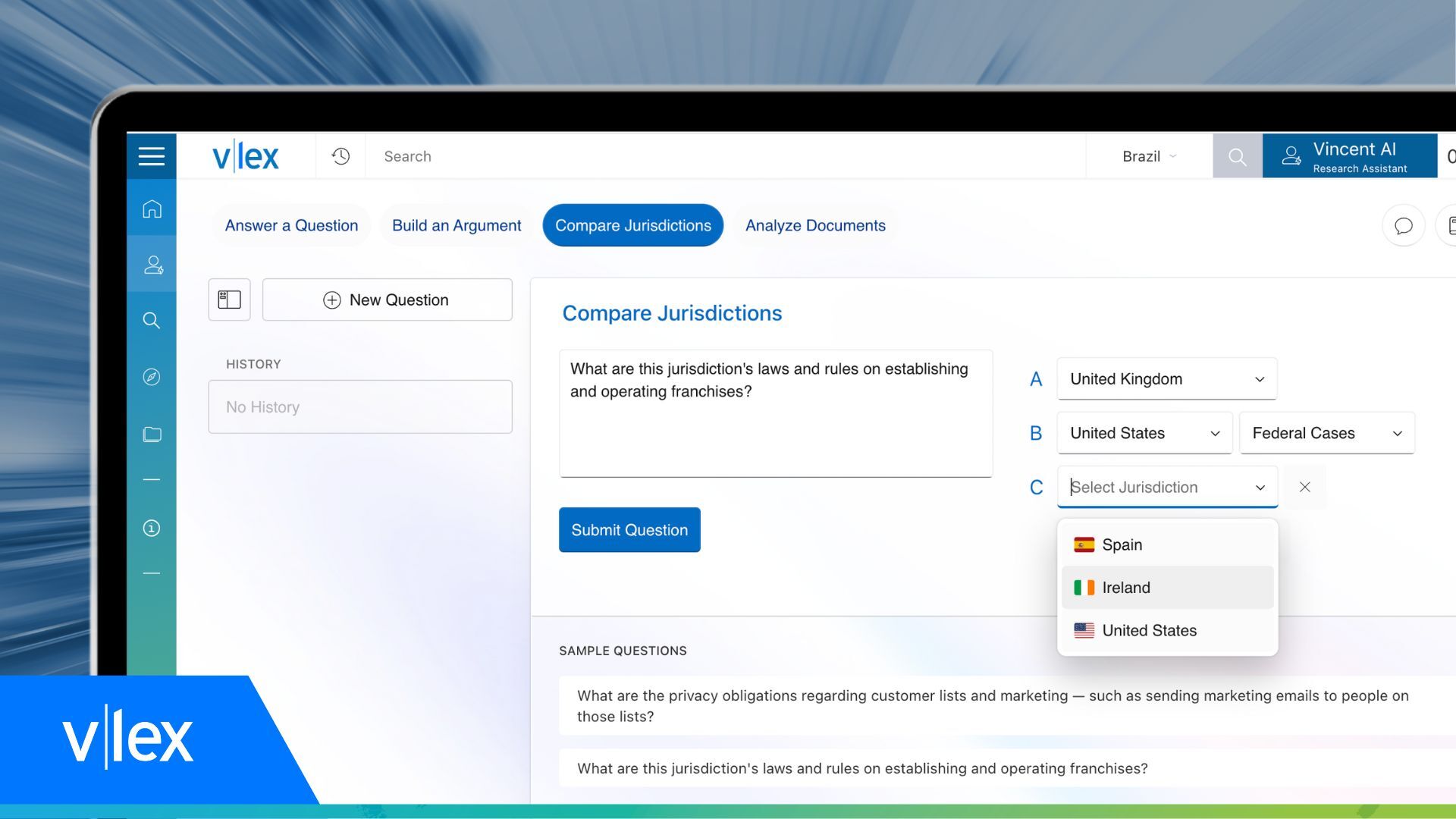James Neal

James Neal
Photo by Scott Pasfield
James Neal has been trying cases for nearly five decades. He’s gotten a lot of advice over the years from judges, lawyers and law professors about what it takes to be successful in court. But the best counsel came from his college football coach at the University of Wyoming, where Neal was a running back in 1951. “The coach used to say, ‘The team with the fewest mistakes during the game will win,’ ” says Neal. “It was true in football and it is true in the courtroom.”
The axiom has served him—and his clients—well. Despite scores and scores of trials under his belt, Neal can count on one hand the number of times a jury has ruled against his client.
That’s not a bad record, considering that Neal, who turns 80 this September, has handled some of the toughest cases ever. He prosecuted Jimmy Hoffa and the central figures in the Watergate scandal. He’s defended Elvis’ doctor, Louisiana Gov. Edwin Edwards, movie director John Landis and the Ford Motor Co. In each case, colleagues and judges told Neal that he had no chance of winning.
“But they didn’t understand how much I hate losing,” he says. “Yeah, I love winning. But I hate losing even more. Just the thought of losing makes my body shrink from 5’8” to 5’6”.”
Neal had no early dreams about being a great trial lawyer. He wasn’t much of a student in college. “I scheduled all my classes in the morning so that when I woke up at noon, I would already be done for the day,” he says.
In law school at Vanderbilt University in Nashville, he decided he wanted to be a tax lawyer. His dream was to lead the tax division of the U.S. Department of Justice. So Neal took night classes at Georgetown University Law Center to get an advanced degree in tax law.
In 1961, he got his big chance. Attorney General Robert F. Kennedy was looking for a handful of bright young lawyers. Their mutual friend, newspaper editor John Seigenthaler, set up a meeting.
A week later, Kennedy called Neal. “Bobby told me that I should do what he needed me to do instead of what I wanted to do,” says Neal, who was asked to lead the prosecutions against corrupt labor union leaders. “I told him I didn’t have any trial experience. He told me, ‘That’s OK because I don’t have any experience being attorney general either.’ ”
JAMES VS. JIMMY
Of all the famous cases he’s handled, Neal says he’s asked to speak most often about his prosecution of Teamsters President Jimmy Hoffa.
“Hoffa was the toughest old bird I ever met,” he says. “Every morning, I would sit down at the prosecution table, look over at the defense, and Hoffa would shoot me a secret finger message under the table.
“When the judge would recess for lunch, Hoffa would walk over to me, stick his chest out and tell me that we should go down to the gym, put on the gloves, so that we could settle this like men,” Neal says.
Then there was the morning of Dec. 5, 1962. The trial against Hoffa—on charges that he used a trucking company to launder union money—was entering its second month in federal court in Nashville. The eighth-floor courtroom was nearly empty when Neal noticed a young man wearing a long, tan trench coat pushing his way past the waist-high swinging doors of the bar.
“All of a sudden, this man pulls out from under his coat the biggest gun I had ever seen in my life,” Neal says. “He first pointed the gun at me and then at Hoffa, and he started shooting.
The man, Warren Swanson, was a 28-year-old former mental patient who later told Neal that he had been driving across the country when God told him that he needed to kill Jimmy Hoffa.
“When Swanson started shooting, I hit the floor and ducked for cover, as did everyone else,” says Neal.
“Everyone except Hoffa. Not only did Hoffa not seek cover; Hoffa started charging toward Swanson and punched Swanson right in the face.”
“Hoffa was even a tough old bird on the witness stand,” Neal says. “He had the same answer to every question I asked: ‘To the best of my recollection, I do not recollect.’ ”
While that trial against Hoffa eventually ended in a mistrial, Neal got his revenge two years later when he convinced a jury that Hoffa was guilty of attempting to bribe jurors in his previous trials.
UPWARD SPIRAL
In 1964, President Lyndon B. Johnson appointed Neal as U.S. attorney in Nashville. Then, in 1966, he started his own firm, which eventually became Neal & Harwell—a partnership that has lasted for 38 years. The firm focuses on high-profile criminal cases and civil litigation.

Click here to read more about U.S. v. Hoffa.
Photo courtesy of James Neal.
In 1972, Neal was hired by Bobby Wayne Wallace in the nation’s first-ever air piracy case to go to trial. The FBI charged that Wallace and his good friend George Gibbs kidnapped Gibbs’ estranged wife, who happened to be Miss Tennessee. The two former football players at Middle Tennessee State University then hijacked a private aircraft to fly to Florida.
The plane landed in Jacksonville for refueling. After the pilot triggered the notification to authorities that he had been hijacked, the FBI quickly surrounded the plane. When the FBI refused Gibbs’ request for fuel and a bottle of champagne, Gibbs killed the pilot, his wife and then himself.
Neal argued that Wallace had been afraid of Gibbs, his former friend and teammate, and that Gibbs’ reaction to the FBI showed he had good reason.
“I told prosecutors at the beginning that my client would plead guilty to intimidating the pilot and accept 10 years in prison, but they turned me down,” says Neal. “After closing arguments, the federal judge called me into his chambers to tell me I had done a great job, but too bad I was going to lose.”
A few minutes later, there was a knock at the judge’s door. The jury acquitted Wallace on all counts.
TRICKY BUSINESS
The next year, 1973, Neal learned his prosecution days were not quite over. Watergate special prosecutor Archibald Cox asked Neal to be chief trial counsel in the cases against John Ehrlichman, H.R. Haldeman and John Mitchell.
“It was by far the most important case in which I have ever been involved,” he says. “I was basically trying to prove that these defendants were involved in a conspiracy with the president of the United States. It gets no bigger than that.”
Neal says the keys to the case were the audiotapes of the men in the Oval Office with President Richard Nixon. Every time the defendants proclaimed their innocence, Neal played the tapes of their voices plotting inside the White House. When the defendants claimed that the money was really for charity, Neal pointed out that they wore gloves while handling the questionable cash.
On Jan. 1, 1975, the trio was found guilty of charges stemming from the break-in and subsequent cover-up.
“It is the only time that I have been sad after winning a case,” Neal says. “But it was the greatest example that our criminal justice system, thanks to an independent judiciary, works—even when dealing with those in the highest positions of government.”
Haldeman’s lawyer, John Wilson, in an interview with Time magazine, described Neal as “the greatest lawyer I ever saw in a courtroom.”
As important and exhilarating as Watergate was, Neal always found his way back home to Tennessee. And in 1980, he found himself in the lead role in the biggest trial in Tennessee history.
FOR THE LOVE OF ELVIS
Dr. George Nichopoulos was charged by Memphis authorities with overprescribing drugs to Elvis Presley, Jerry Lee Lewis and nine others. While Dr. Nick, as he was known, was not charged with killing Elvis, ABC News reported that it was those prescription drugs that caused the singer’s death in 1977.

Click here to read more about People v. Landis.
Photo courtesy of James Neal.
Neal’s own investigation found that Presley was getting illegal prescription drugs from several others when he couldn’t get them from Dr. Nick. He also learned that the doctor was switching many of Presley’s prescription meds with placebos in an effort to wean him from the addictive drugs.
“I discovered that if it were not for Dr. Nichopoulos, Elvis would have been dead years earlier,” says Neal. “The evidence showed that [Dr. Nick] was actually slowly reducing the amount of medicines he was giving to Elvis. He was the only person who truly cared for Elvis—a true Good Samaritan.”
While Neal had found his defense argument, he also recognized that the people of Memphis adored Presley. He wasn’t sure his client could get a fair trial due to juror prejudice. But to prove that the jury pool had been tainted, Neal hired a jury consultant to survey local citizens.
The results proved shocking. Two-thirds of Memphis residents blamed Presley himself for the drug overdose, while only one in five thought his doctor was responsible. Even more interesting to Neal was that only 12 percent of those polled believed that Presley’s physician should have refused to treat him and should have turned the singer in to police. However, 70 percent believed that the doctor should have continued treating Presley in an effort to reduce his drug dependence.
Needless to say, Neal decided to keep the trial in Memphis.
In the Dr. Nick case, as in all of his court victories, Neal waited to pounce on any prosecution mistake. The opportunity presented itself with the state’s key expert medical witness, who was called to criticize Nichopoulos’ method of treatment. On direct examination by prosecutors, the doctor testified that he had written many scholarly articles on this exact subject.
“We knew this guy was going to testify, so we checked him out at the Vanderbilt medical school library and could not find a single article he had published in any medical journal,” says Neal.
On cross-examination, Neal asked the state’s expert to name the journals in which he claimed to be published. When the witness couldn’t, Neal began naming prominent medical journals, forcing the doctor to answer no to each. He even asked the state’s witness to make phone calls during a court break to get the names of the journals. But even after the break, the expert testified he couldn’t remember the names.
“His entire testimony was discredited by that mistake,” Neal says.
The state’s expert never recovered and neither did the prosecution’s case. The five-week trial ended on Nov. 5, 1981, when the jury composed of six men and six women took only three hours to find Nichopoulos not guilty on all counts.
Neal admits he’s slowing down a bit. He wants to refocus his practice on helping the younger lawyers at his firm to become better trial lawyers. Asked why he thinks he’s had the privilege of trying so many high-profile and fascinating cases, Neal pauses, and then offers the briefest of explanations:
“Just damn luck. That’s all it has been.”
JAMES NEAL
Born 1929 in Oak Grove, Tenn.
Firm Neal & Harwell.
Law schools Vanderbilt, Georgetown.
Significant cases
1974—Neal served as lead trial attorney in the Watergate prosecutions of Nixon White House aides John Ehrlichman and H.R. Haldeman.
1981—Successfully defended Dr. George Nichopoulos on charges that he overprescribed medications to Elvis Presley, Jerry Lee Lewis and other patients.
1985—Represented Louisiana Gov. Edwin Edwards in his first trial for racketeering. The jury voted 11-1 to acquit. On retrial, Edwards was acquitted.
1987—Neal successfully defended movie director John Landis, charged with involuntary manslaughter and child endangerment in the death of actor Vic Morrow and two child actors during the filming of Twilight Zone: The Movie.
Other career highlights—As assistant to Attorney General Robert F. Kennedy, Neal successfully prosecuted Jimmy Hoffa, president of the Teamsters union, in 1964 for attempting to bribe a grand juror. Hoffa received a 15-year sentence. Neal has also represented former Vice President Al Gore in personal matters.
Read about the other “Lions”:
Bernie Nussbaum: From Watergate to the World Trade Center
Joe Jamail: Keeping it simple
Fred Bartlit: John Wayne in a pinstripe suit
Bobby Lee Cook: Kickin’ asses that needed kickin’
James Brosnahan: Defending clients, not movements
Richard “Racehorse” Haynes: The man they call when they’re in Texas-size trouble
Sidebar

Photo courtesy of James Neal.
Case U.S. v. Hoffa.
Date Jan. 22, 1964.
Location Federal courthouse in Chattanooga, Tenn.
Who James Neal (far right), Justice Department prosecutor; Nashville TV reporter Bill Jay (holding microphone); Teamsters President Jimmy Hoffa, (second from left), accompanied by his lawyer, Frank Ragano. At center is Chicago mobster Allen Dorfman, head of the Teamsters Central States Pension Fund.
What After his first trial ended in a hung jury, Hoffa was reindicted on charges that he tried to bribe a federal grand juror. In this photo, Neal is being interviewed by a Nashville TV crew as the trial opened. As Hoffa strides by, he bellows: “Yeah! The Marines are here!” (in reference to Neal’s service record).
Note Hoffa was later convicted and sentenced to 15 years in prison. His sentence was commuted in 1971. He disappeared in 1975 after a business lunch and was presumed murdered. Dorfman operated the Teamsters pension fund until he was convicted of racketeering. He was murdered at a hotel just north of Chicago in 1983.

Photo courtesy of James Neal.
Case People v. Landis.
Date 1987.
Location Los Angeles.
Who Attorney James Neal, movie director John Landis and his wife, Deborah.
What Landis was on trial in the deaths of three actors killed by a helicopter during filming for Twilight Zone: The Movie.
Note It took the jury nine days to decide to acquit Landis and four associates after a trial that lasted 10 months.
Mark Curriden, an occasional contributor to the ABA Journal, is a freelance writer based in Dallas.



